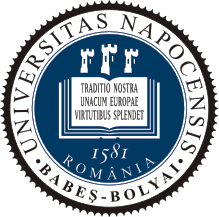Information about the project
Granted By: CNCS-UEFISCDI
Project Title: "Outcomes of adolescence. A longitudinal perspective on the effect of social context on successful life transitions"
Project Code: PN-II-ID-PCE-2011-3-0543
Contract Code: 233 ⁄ 05.10.2011
Scientific Coordinator: Prof. Maria Roth, PhD.
Project Manager: Assist. Prof. Teodor Paul Hărăguş, PhD.
Project Description
"Babes-Bolyai" University of Cluj-Napoca, Faculty of Sociology and Social Work through the Department of Social Welfare, conducted a national survey on the lives of young people and future projects in the Project „Outcomes of adolescence. A longitudinal perspective on the effect of social context on successful life transitions”, project PN-II-ID-PCE-2011-3-0543, granded by CNCS-UEFISCDI. The unifying objective of the project is to construct a longitudinal study (as far as we know the first longitudinal study on this subject) on transition of adolescents to young adulthood in Romania. Our intention is to identify (by the analysis of demographic, neighborhood and income factors, parent, peer, and teacher relations) those social contexts (educational, family, services etc.) that are beneficial for adolescents’ successful transition to young adulthood. We intend to look at the ways these social determinants interact with the agency of individuals and the life events that mark their lives (falling in love, changing school, succeeding graduation, starting work, volunteering, becoming pregnant etc.). The research is expected to take place in two stages: when young people are in the final year of school and two years after leaving school. The results of this research will contribute to the knowledge of how young people see their life chances and problems.
Expected Results:
(1) by assessing the explanatory factors of the two theoretical models: the interactionist-ecological theory and life course perspective, we see the impact of life-course events with impact the risk factors and resilience to design an integrative model-explanatory.
(2) by studying the explanatory factors of social context in relation to individual psychological factors hope to identify individual factors related to activism teenagers who are strong enough to overcome the unfavorable contexts, but also social contexts and life events that restrict development potential individuals.
(3) by establishing and developing coping markers that distinguish between adolescents at risk and adolescents of success will include in evaluation adolescents at risk due to poverty, rural area, Roma and family situation, those not receiving benefits and support programs organized by social services; comparing contextual factors, markers of development and results of these two categories.
(4) by exploring factors of mental health that build agents able to compete with the adversities we investigate the role of education and self-esteem, optimism and positive outlook on successful entry into adulthood.
(5) by identifying contexts, events and demographic factors that act as risk factors and assessing their effect (Roma and/or poor community, being placed in child protection, early sexual relations) we identify different models for adolescents with a different social background, and due to the age, we pay special attention to relationships, intimacy and sexuality.
Study Calendar
2013: Analysis of Wave 1 data Preparation the Wave 2 field research (development of the instrument for the second wave survey, testing the instrument on a small sample) Managing the sample (getting agreements to participate in the study and to record contact data, as well as maintaining connections with adolescents that were interviewed). Activities of disseminating the results of the research. 2014: Wave 2 data collection and conducting qualitative interviews with disadvantaged teenagers. Developing the theoretical explicative model for the phenomenon under study. Managing the sample (getting agreements to participate in the study and to record contact data, as well as maintaining connections with adolescents that were interviewed). Activities of disseminating the results of the research.
Results
SCIENTIFIC REPORTS STUDIES & ARTICLES 2015 Articles in ISI Journals Degi, C.L., & Faludi, C. (2015). The Effect of Sexual Debut and Health Risk Behaviours on Baccalaureate Performance of Romanian Adolescents. Croatian Journal of Education, 17 (2), 333-352. Articles in Journals indexed in International Databases Faludi, C. (2015). Particularities of violence in couple among nowadays Romanian young people. Anthropological Research and Studies, 5, 20-21. Pop, F. & Roth, M. (2015). Ethnic divisions and social capital described in the narratives of young Romanian roma in Today’s Children Tomorrow’s Parents, 40, 98-111. Chapters, studies in collective books Faludi, C. & Dégi, L.C. (2015). Impactul experiențelor familiale din copilărie asupra relațiilor romantice și singurătății la adolescenții din România. În Rada, C., Bistriceanu Pantelimon, C. (coord.), Provocări ale familiei contemporane. Perspective psiho-socio-medicale (pp. 49-65), București: Editura Universitară. Raiu, S.L. & Lorincz, C. (2015). First experience in work of Romanian youth – a sociological point of view. În Boldea, I. (Editor), Debates on Globalization. Approaching National Identity through Intercultural Dialogue (pp. 163-172). Tîrgu Mureș: Arhipelag XXI Press. Vincze, A.E., Roth, M., & Hărăguș, P. (2015). Pathways of wellbeing to young adulthood. SGEM – International Scientific Conferences on Social Sciences and Arts, Psychology and Psychiatry, 1, 141-149. Vincze, A.E., Hărăguș, P., & Roth, M. (2015). Satisfaction with life of Romanian young adults. SGEM – International Scientific Conferences on Social Sciences and Arts, Psychology and Psychiatry, 1, 181-189. Articles in progress Vincze, A.E. (in progress). Demographic correlates of Happiness in Romanian Young Adults. Procedia – Social and Behavioral Sciences. Vincze, A.E. […]





